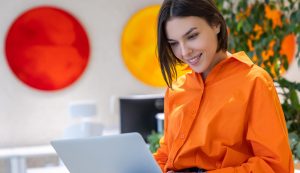The use of any technological tool requires a full understanding of its functioning and potential limitations and risks. In the translation industry, irresponsible or unethical use of Artificial Intelligence (AI) poses significant threats, which can lead to serious consequences for businesses, communities, and language integrity itself. In this blog post we will address some key ethical concerns associated with the use of AI and provide practical steps to ensure its responsible use.
Ethical Concerns
There are a few different ethical concerns you will want to keep top of mind before using AI.
1. Copyright and Ownership Concerns

To properly train generative AI, you need a large amount of data. The source of that data is often public postings on the internet. This can lead to the inclusion of copyrighted material without proper authorization. The legal situation around the use of generative AIs is complex and often undefined. There is a significant risk of inadvertently using AI-generated content that may contain copyrighted elements, which could lead to legal complications. Therefore, it’s crucial to check the output for its origin and ensure it does not violate existing copyrights.
2. Bias
Generative AI models are trained on human-created content, which often includes inherent biases. As a result, AI sometimes produces biased, stereotyped, or even harmful outputs. While developers are working to mitigate these issues, achieving unbiased results is a challenging endeavor that may take years to perfect. Unlike humans, machines struggle to understand nuanced contexts, which makes it difficult for them to consistently produce fair and unbiased content.
3. Confidentiality
Given that AIs are trained on vast datasets, privacy concerns naturally arise. Issues like data breaches, unauthorized access, and improper collection, storage, and use of information are significant risks. Many AI systems are public-facing tools accessible to anyone without restrictions, which poses a considerable threat to confidentiality. Information inputted into these systems can potentially be used to generate responses to future queries, risking exposure of sensitive data.
Practical Steps for Ensuring Ethical AI Use
If you intend to use AI, these are some steps you can take to do so ethically.
1. Check that AI Tools Adhere to Ethical Standards
Before adopting any AI tool, ensure that it was developed with the four pillars of ethical AI in mind—privacy and security, transparency, fairness, and accountability. These pillars can guide your decision-making process and help you choose tools that align with ethical standards.
2. Verify Data Sources

AI tools often present information with equal certainty, regardless of its accuracy. It’s essential to fact-check their output for truthfulness and sound reasoning. You also need to confirm the content is ethically sourced and does not infringe on copyrights. Human oversight is crucial to avoid liability claims and ensure content accuracy.
3. Develop and Update Company Policies
Create and regularly update company policies regarding the use of AI in the workplace. Train employees on these policies to ensure they understand the ethical considerations and potential risks associated with AI use. Provide guidance on mitigating issues such as misinformation, privacy breaches, ethical and legal challenges, and bias.
4. Review AI Outputs
Review AI-generated content to ensure it respects cultural sensitivities and norms. Be aware of regional differences and gender sensitivities to avoid producing content that could be offensive or inappropriate.
5. Consider Closed AI Systems
For handling sensitive materials or information, consider using a closed AI system that is trained solely on your company’s data. This approach prevents your input from being used in public-facing AI models, helping to safeguard your confidential information.
6. Maintain Transparency with Clients
Transparency is key to building trust with your clients and stakeholders. Keep them informed about the AI tools you use and the measures you take to ensure ethical practices. Being open about your use of AI and your commitment to ethical standards will enhance your credibility.
The Takeaway

The ethical concerns surrounding AI are critical issues that businesses must navigate as they integrate these technologies. It is paramount to ensure a solid and trustworthy AI-human collaboration, maintaining ethical standards to protect your business, clients, and community. Responsible AI use not only prevents potential legal and ethical pitfalls but also strengthens your reputation and trustworthiness in the industry.
By understanding and addressing these ethical concerns, companies can harness the benefits of AI while minimizing risks and fostering a more responsible technological future.









